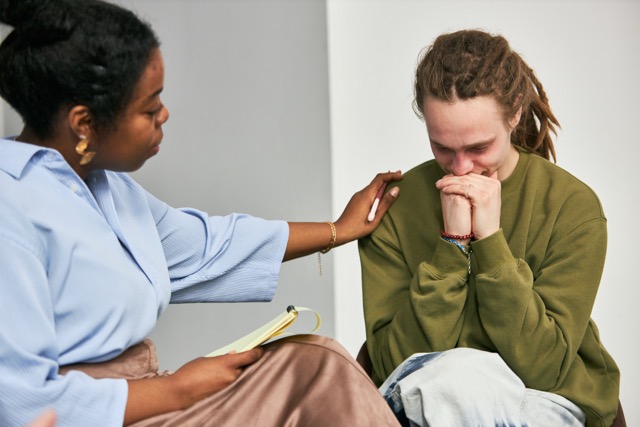Drug addiction is often described as a personal battle—but the reality is, it's rarely fought alone. While the physical and emotional toll on the individual is immense, addiction also casts a long shadow over everyone close to them. Whether it's family, friends, coworkers, or even casual acquaintances, the ripple effects of substance abuse can be deep, damaging, and long-lasting.
Let’s take a closer look at how drug addiction affects the people in your life.
Family: The First to Feel the Impact
For most people, family is the first and closest support system. But when addiction enters the picture, that system is often thrown into chaos.
Emotional Strain: Watching a loved one spiral into addiction is heartbreaking. Family members often feel helpless, frustrated, or angry. Trust erodes quickly, especially when promises are broken, lies are told, or money goes missing.
Parental Guilt and Fear: Parents of addicted children frequently blame themselves, wondering what went wrong. Meanwhile, children of addicted parents may be forced to grow up too quickly, take on caregiving roles, or suffer emotional neglect.
Financial Pressure: Addiction can bring financial turmoil to a household. From legal fees to lost income and the cost of rehab, the burden often falls on family members.
Friends: Pulled Between Loyalty and Self-Preservation
True friends want to help—but addiction often puts them in impossible positions.
Enabling vs. Helping: Friends might struggle to distinguish between supporting you and enabling your behavior. Lending money, covering for you, or excusing your actions can become a damaging cycle.
Emotional Exhaustion: It’s draining to constantly worry about someone who’s addicted. Friends may experience anxiety, sadness, or guilt. Eventually, they may pull away to protect their own mental health.
Broken Bonds: Addiction can destroy trust, even among lifelong friends. Missed plans, erratic behavior, or betrayal can cause friendships to fade or break completely.
Romantic Relationships: Love Under Siege
Romantic partners often feel the full force of addiction’s impact, caught between love and fear, hope and despair.
Loss of Intimacy and Communication: As drugs become the main focus, emotional and physical intimacy often disappear. Honest conversations turn into arguments, and the relationship may become toxic or abusive.
Codependency and Manipulation: Some partners become codependent, sacrificing their own well-being to "save" the addicted person. Others may be manipulated into covering up destructive behavior.
Safety Concerns: Substance abuse increases the risk of domestic violence, reckless behavior, and financial instability—all of which can make the home environment unsafe.
Work and Community: Reputations and Responsibilities
The impact of addiction doesn't end at home—it often extends to the workplace and community.
Job Loss and Professional Damage: Addiction can lead to missed deadlines, poor performance, and unprofessional conduct. Coworkers may have to pick up the slack or deal with the fallout.
Legal Consequences: DUIs, arrests, or other legal troubles related to drug use can damage your reputation and relationships in your community.
Loss of Trust: Once you lose the trust of your professional network or neighbors, it’s incredibly hard to regain.
The Power of Recovery: Healing Together
While addiction can devastate relationships, recovery can help rebuild them. Healing is not just for the person struggling with addiction—it’s for everyone involved.
Rebuilding Trust Takes Time: Trust can be repaired through consistency, honesty, and accountability. Actions matter more than words.
Family Therapy and Support Groups: These resources can help everyone process their pain and move forward in a healthy, supportive way.
Hope for the Future: Recovery offers the chance to mend broken connections and strengthen bonds that were nearly lost.
Final Thoughts
Addiction is never a solitary experience. Every decision you make while under the influence has the potential to harm those who love and care about you. But the opposite is also true—every step you take toward recovery can bring healing and hope not just to yourself, but to everyone who’s walked this difficult road with you.
If you or someone you love is struggling with addiction, know that help is available—and it's never too late to start the process of healing.
Need additional help with recovery visit or contact us at Hope Haven Recovery Center.





.webp)
.webp)